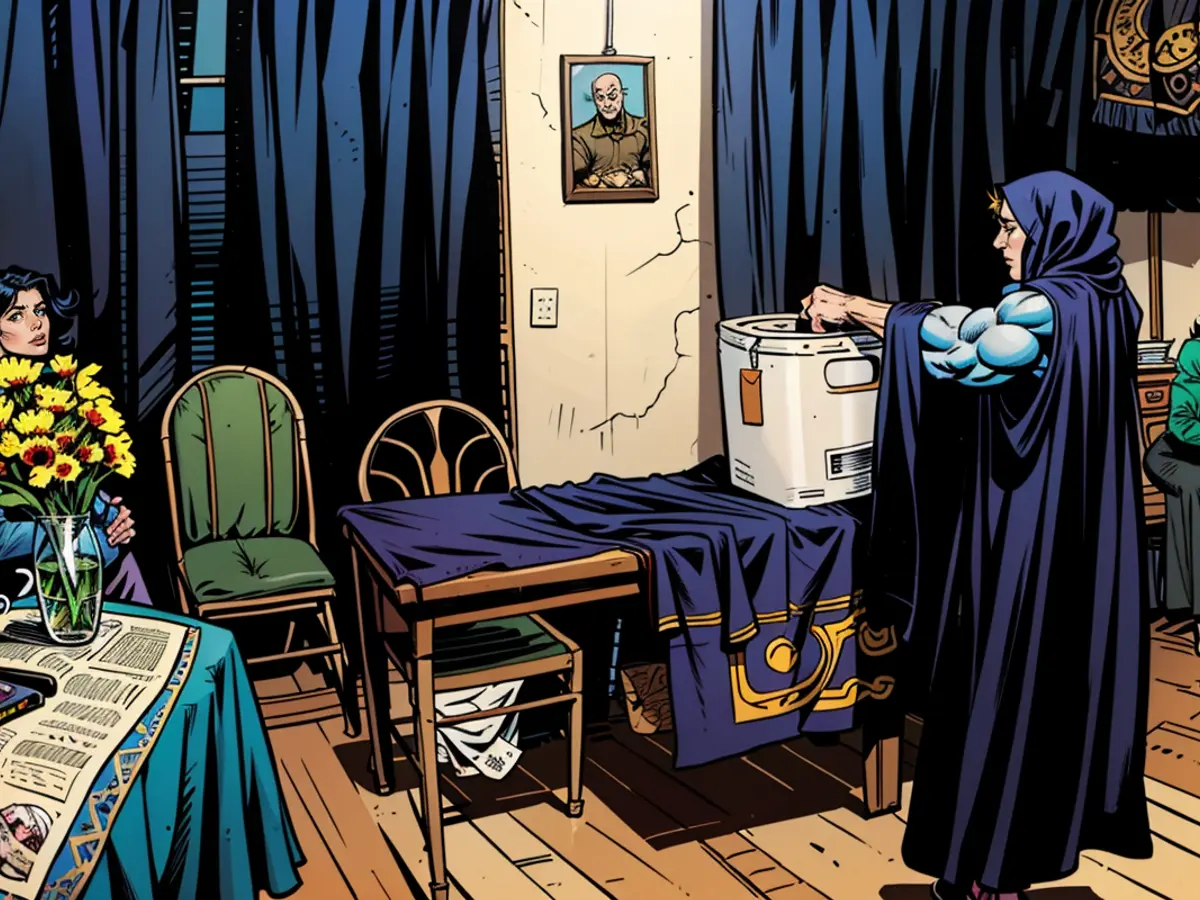Reformers against hardliners: people in Iran called to vote in presidential run-off election
Peseschkian and Djalili ran for the succession of the May 19th helicopter crash victim Amtsinhaber Ebrahim Raisi. The voters were provided with a total of 58,638 polling stations domestically and abroad, according to the State Television, quoted Interior Minister Ahmed Vahidi. Long queues were visible in front of polling stations in Sawe in the center of Iran and Kerman in the south on State Television. In Teheran, the capital, the polling stations were less crowded, as reported by AFP news agency reporters.
In the first round on the previous Friday, Peseschkian received 42.4% of the votes, and Djalili came in second with 38.6%, according to official figures. A total of 61 million citizens were called to vote, and the turnout in the first round was only 40%. Therefore, Khamenei called for active participation in the second round.
"I have heard that the people's enthusiasm and interest are greater than before," said Khamenei after casting his vote on Friday. "That would be very pleasant," he added. In the Iranian opposition and in the diaspora, a boycott of the election was called for, as reformist and conservative candidates were seen as two sides of the same coin.
While Djalili has Chamenei's trust and is supported by hardliners and other ultra-conservative candidates who have dropped out or withdrawn, former reformist presidents Mohammad Khatami and Hassan Rouhani have rallied behind Peseschkian.
Khatami called on voters to "vote for the future and the welfare of the country" during the Friday vote. Under Khatami, the 69-year-old heart surgeon Peseschkian served as Health Minister from 2001 to 2005. Since 2008, Peseschkian has been a parliamentarian for the northern city of Tabriz.
Peseschkian advocates for a more open approach towards the West. He confirms his loyalty to Iran but has called for "constructive relations" with the United States and European countries to "bring Iran out of isolation." The 69-year-old cast his vote at a school west of Teheran, accompanied by former Foreign Minister Mohammad Javad Zarif. Zarif was involved in the formation of the 2015 nuclear agreement.
The reformist had also criticized the Raisi government for a lack of transparency during the nationwide protests in September 2022, which were triggered by the death of Mahsa Amini in police custody due to an alleged violation of Iran's strict dress code for women. The 22-year-old Iranian Kurd was arrested for an alleged infringement of the dress code.
Meanwhile, the 58-year-old Djalili advocates for a hardline stance towards the West. The former Atom negotiator of Iran held several high-ranking positions. Currently, Djalili is one of the representatives sent by Khamenei to the Supreme National Security Council, the highest security policy body of the country. Djalili cast his vote in the second round at a mosque in the southern city of Kartschak.
At a polling station in Teheran, the 40-year-old Hossein stated that he had voted for Peseschkian because he believed he could bring about changes. "During his campaign, I got the impression that he addressed the crucial questions honestly," Hossein said. However, the 19-year-old Melika Moghtadaie expressed her support for Jalili. She hoped he could help improve the economy, "as we expect," the student said.
Independently of the outcome of the election, the effects on the political reality of the country should remain within limits. The political power in Iran has belonged to the spiritual leader of the country since the Revolution in 1979. The President, on the other hand, is responsible for implementing the political guidelines set by the spiritual leader.
- Said Jalili, a hardliner supported by Khamenei and other conservative candidates, voted at a mosque in Kartschak for the run-off election.
- People in Sawe and Kerman showed their enthusiasm for the election with long queues in front of polling stations, as seen on State Television.
- In Teheran, the situation was different, with less crowded polling stations, according to reports from AFP news agency reporters.
- Mohammed Jawad Sarif, a reformist candidate backed by Khatami and Rouhani, advocates for constructive relations with the West and criticized the Raisi government's lack of transparency during the nationwide protests.
- At a school west of Teheran, Sarif cast his vote, accompanied by former Foreign Minister Mohammad Javad Zarif, who was involved in the formation of the 2015 nuclear agreement.
- In the Iranian opposition and the diaspora, a boycott of the election was called for, as reformist and conservative candidates were seen as two sides of the same coin by many.
- Regardless of the election outcome, the political power in Iran remains with Ayatollah Ali Khamenei, the spiritual leader of the country, who sets the political guidelines for the President to implement.







